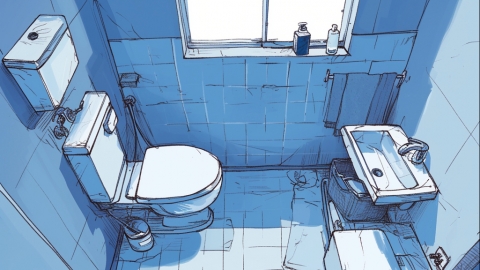What causes yellow urine during postpartum confinement?
Yellow urine during the postpartum confinement period (sitting the month) may be caused by insufficient water intake, dietary factors, acute urethritis, urethral syndrome, or secondary urinary discomfort due to vaginitis. This can be improved by increasing fluid intake, adjusting diet, and medical treatment. If yellow urine is accompanied by symptoms such as painful urination or fever, prompt medical attention is necessary.
1. Insufficient water intake: Breastfeeding after childbirth increases fluid consumption, and failure to replenish fluids in time leads to concentrated urine, resulting in yellow-colored urine without other discomforts. It is recommended to drink warm water in small amounts frequently, maintaining a daily intake of 1500–2000 ml, avoiding excessive drinking at once.
2. Dietary influence: Consuming excessive spicy, hot foods or over-supplementing may deepen urine color, making it more yellow. A light diet is recommended, with increased intake of fresh vegetables and fruits, reduced consumption of spicy and greasy foods, and balanced nutritional supplementation.

3. Acute urethritis: Postpartum decline in immunity allows bacteria to invade the urethra and cause inflammation, leading to yellow urine accompanied by frequent, urgent, and painful urination. Under medical guidance, patients may take medications such as amoxicillin capsules, cefaclor capsules, or Sanjin tablets to relieve symptoms.
4. Urethral syndrome: Hormonal changes after childbirth and increased sensitivity of the urethral mucosa may lead to urinary discomfort, manifesting as yellow urine and a burning sensation at the urethral opening. Under medical guidance, medications such as sodium bicarbonate tablets, flavoxate hydrochloride tablets, or compound lysimachia granules may be used to alleviate symptoms.
5. Secondary urinary discomfort due to vaginitis: Reduced vaginal resistance after childbirth may trigger inflammation, which spreads and irritates the urethra, causing yellow urine and mild pain during urination. As directed by a physician, patients may use medications such as metronidazole suppositories, clotrimazole suppositories, or Honghe Fuyin cleansing solution to improve symptoms.
Maintain good external genital hygiene and change underwear regularly. Engage in moderate physical activity after childbirth to promote metabolism. Maintain a diet that balances light flavors with adequate nutrition, drink plenty of water, and urinate frequently to reduce irritation of the urethra by urine.




